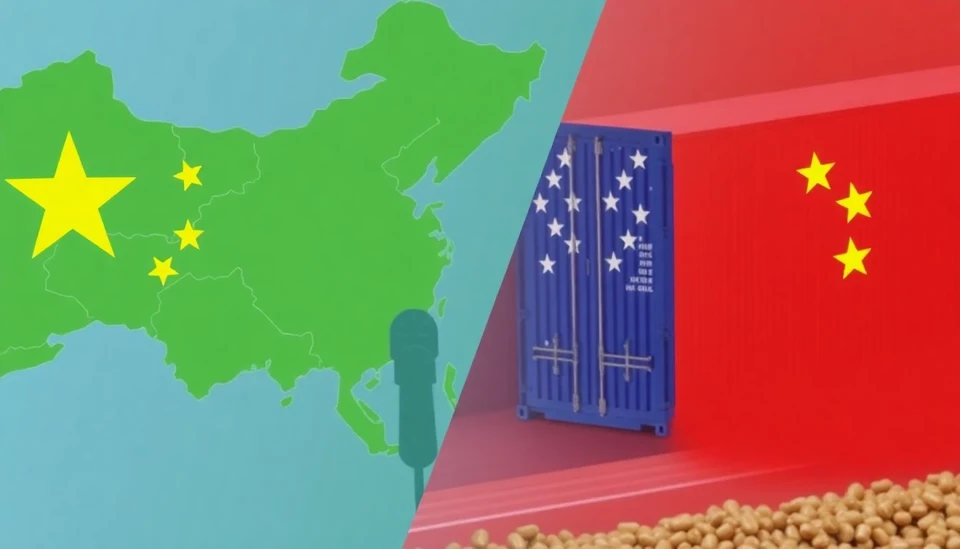
In a significant upset to already rocky U.S.-China relations, the Chinese government has announced a new set of tariffs on a range of American agricultural products, including soybeans, which is expected to impact the global agricultural market significantly. This decision has reignited concerns over the ongoing trade conflict between the two nations, casting a shadow over any potential negotiations to resolve the outstanding trade disputes.
The tariffs come at a perilous time, as both countries have been trying to stabilize their economies post-pandemic while dealing with the repercussions of inflation and supply chain disruptions. Analysts are apprehensive about the impact of these tariffs on U.S. farmers, particularly those heavily reliant on exports to China—the world’s largest importer of soybeans.
Specifically, China will impose a 25% tariff on soybeans and a variety of other farm products from the U.S., showcasing a strategic move to challenge America’s agricultural dominance and as a tactic to alleviate rising domestic prices for its consumers. This maneuver appears to be in response to existing tariffs imposed on Chinese imports by the United States, which created an imbalance in trade dynamics and added strain to the bilateral relationship.
In recent years, trade between these two giants has become increasingly fraught as both sides have imposed tariffs on each other's goods. The agricultural sector in the U.S., already vulnerable to international market fluctuations, now faces an uphill battle as these new tariffs will inflate prices for American farmers and potentially hinder their competitive edge in global markets.
The agricultural community in the U.S. has expressed its discontent over this decision, with many fearing that the increase in tariffs will drastically reduce their sales to China. Dealers and traders alike have already begun to see a downturn in soy prices as speculations regarding the impending tariffs hit the market. The growing consensus is that if the agricultural sector suffers, it may lead to further economic ramifications that could reach beyond the farmers themselves, trickling down to supply chains, local economies, and even consumer prices in the long run.
Moreover, industry experts suggest that these newly imposed tariffs could signal a broader shift in China's foreign trade policies. As China seeks to develop its domestic agriculture sector, the tariffs may also serve to protect local farmers from foreign competition, positioning them more favorably in what remains a volatile marketplace.
With the agricultural community feeling the heat from this decision, many stakeholders are advocating for diplomatic solutions to curb the growing tensions. Both American and Chinese officials will likely need to engage in prolonged talks to avoid further escalation and to protect their respective economies from the profound consequences that could arise from a sustained tariff war.
As the situation develops, both nations are encouraged to find common ground and explore avenues for cooperation rather than confrontation. The fate of bilateral trade relations could very well hinge on the next steps taken by both governments in the wake of these tariffs.
With numerous global economic factors at play, the unfolding events warrant close monitoring as both countries assess their agricultural strategies and trade policies in the future.
#China #USTariffs #Agriculture #Soybeans #TradeWar #Farmers #Economy
Author: Rachel Greene




